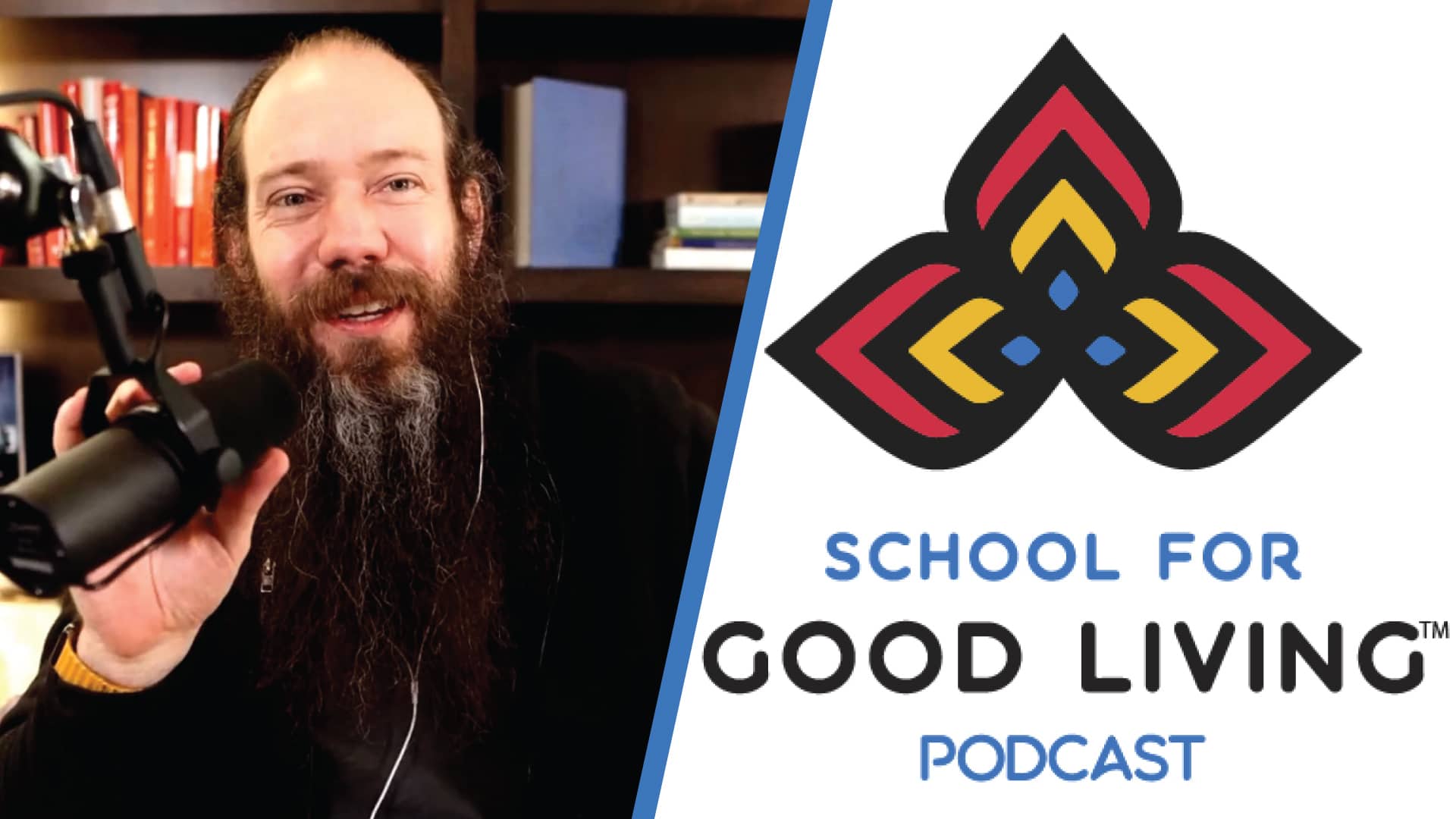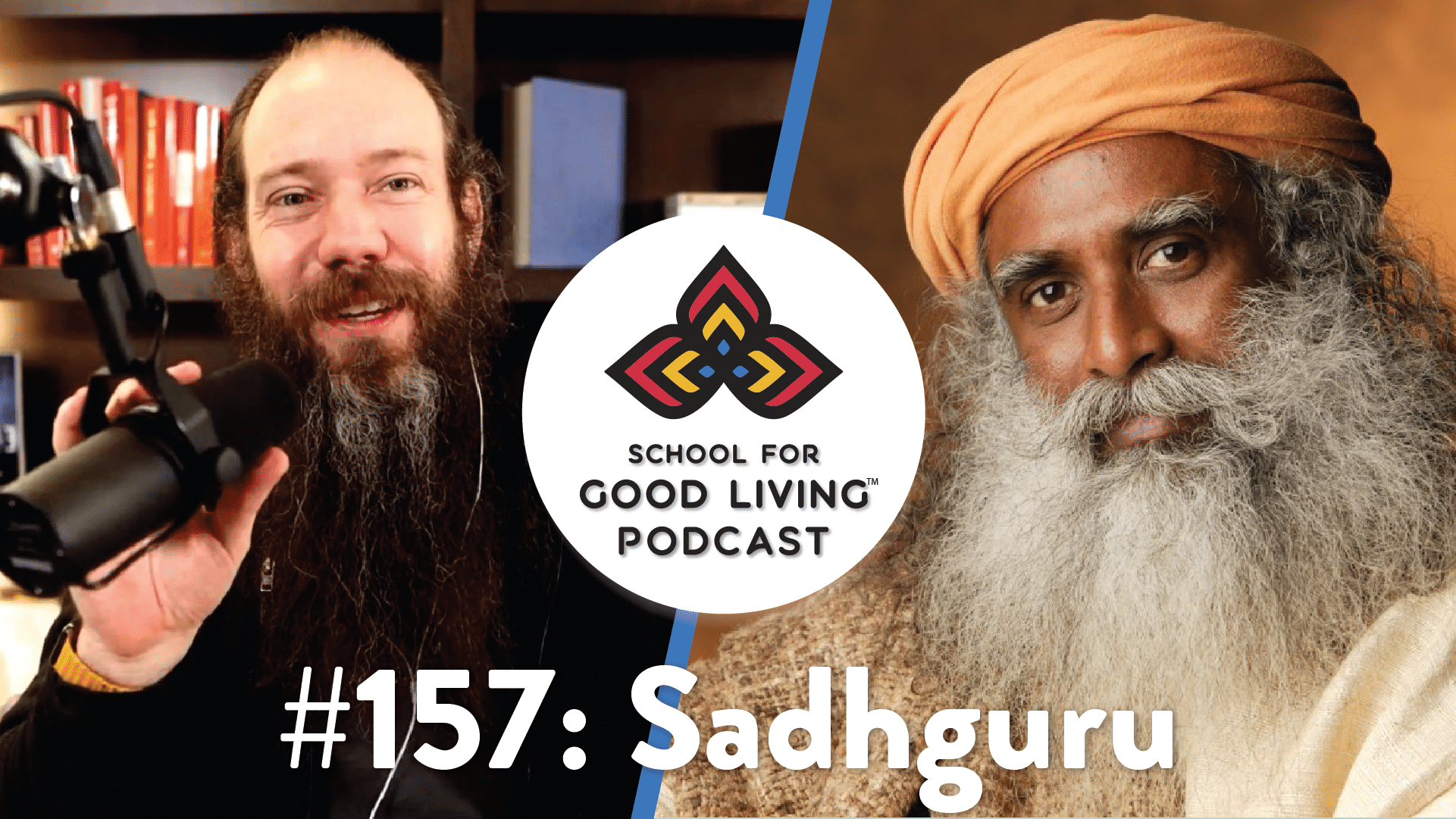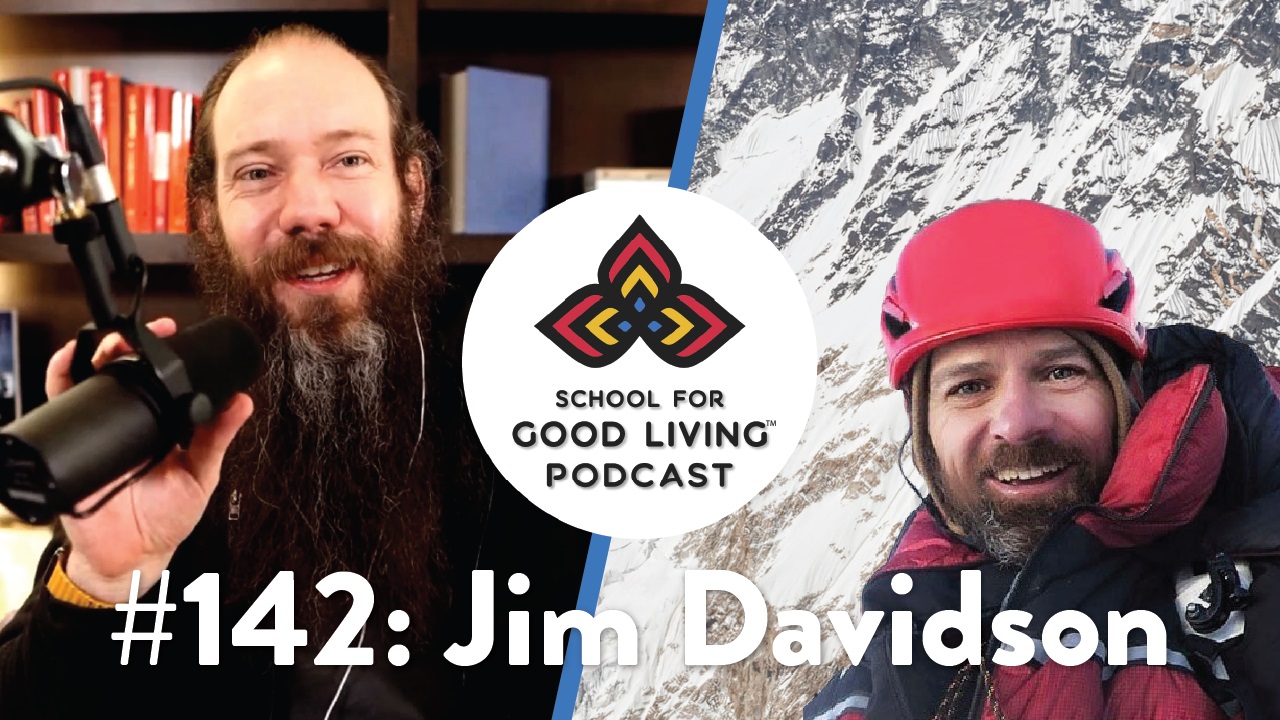Archive
100 words to help you LIVE A GOOD LIFE
The Most Important Decision You Will Ever Make
My dad used to say, “The quality of your life is directly related to the quality of your decisions.”
Life presents an unending series of decisions.
Of course, not all decisions are equal—what to have for lunch today isn’t as important as deciding whether or not to quit eating meat.
What pajamas you wear to bed isn’t as important as who you’ve decided to sleep next to.
But of all your many choices, one stands out as most important: The decision to be happy no matter what.
Have you decided yet?
Create Space For What You Really Want
When you want something, make sure there’s room in your life to receive (or create!) it.
This concept first occurred to me about fifteen years ago after my dad built a $100 million motor sports park in Utah’s West Desert.
When it was done, I asked my oldest brother if he planned to start racing.
He said, “There’s nothing I want to stop doing to make room to race cars.
Know what you want. Then, deliberately let go of what you want less—or better yet, what you no longer want at all.
This Researcher Analyzed Hundreds Of Emotions And This Is What She Learned
Karla Mclaren has researched and written about emotions for decades.
Karla believes that emotions can be grouped into four “families” – Anger, Fear, Sadness and Happiness. In turn, each of these emotion families breaks down into more specific emotions, with seventeen distinct emotions in all.
Then, Karla says, we feel each of these 17 emotions at differing levels of intensity – from “Soft,” “Medium” to “Intense.”
Understanding and working intelligently with our emotions is one of the most powerful ways to become more skillful at living.
How To Strengthen Friendships That Strengthen You
Everything occurs in relationship.
Relationship with food. Money. Work. Yourself. The unseen. The present moment.
And, of course, the people in your life.
The foundation of every relationship is attention.
You have a strong relationship with that to which you pay attention.
Strong relationships, therefore, require attention.
As we get older, it can be easy to devote our attention to things other than our friends. Kids. Career. Netflix.
Keep friendships strong by investing your attention, by any means necessary—three-minute phone calls, quick text messages, cards, walks, lunches or (blessing of blessings!) dinners.
Examine Your Fears in the Cold Light of Day
If you’ve wanted something for a long time but haven’t been able to achieve it, try this
Write your desired outcome clearly.
In your journal, or using index cards, list every reason you haven’t achieved it, why you shouldn’t try, or anything undesirable that would happen if you did.
Then, for each reason, ask:
“How does this belief serve me?”
“What triggers this belief?”
“When did I begin to believe this?”
“Who would I be / what would life be like without this belief?”
“What could I choose to believe instead?”
Deal with Life as It Is
You’ve probably heard the old adage, “What you resist persists.” Or, as Tony Robbins says, “Problems need energy to live.”
Very often, problems cease to be problems the moment you stop viewing them as problems. That’s how you stop putting energy into them.
It doesn’t mean your problems go away. It just means that they become something to be dealt with. (Or not.)
A friend once suggested that you can approach everything in life from the perspective of “WHAT’S SO” (how events, people and circumstances are) or “SO WHAT?” (our judgments, stories and complaints).
The Power of Writing Your Goals
You can’t hit a target you can’t see. (Okay, maybe you COULD—but even then, how would you know?)
Writing can clarify and focus your thinking.
Writing is a powerful way to capture and preserve intentions.
By writing your goals, you know they exist. You can also return to them and more easily refine them. Writing makes it easier to share them with others.
And, the mind is a slippery place. We often think we know something until we attempt to explain or remember it.
If your goals are worth pursuing, they’re worth writing.
Trust Your Body
I recently told a friend that I’m drinking more water to maintain a healthy immune system.
I’ve heard that many people live chronically dehydrated, that doctors often misdiagnose dehydration for disease, and that by the time you notice you’re thirsty, you’re already dehydrated.
I asked my friend what he’s doing to stay healthy.
He said he’s paying attention to his body’s wants – sleep, food, water, movement, etc.
It reminded me of the Zen saying, “When hungry, eat your rice; when tired close your eyes. Fools may laugh at me, but wise men will know what I mean.”
Be the Kind of Person You Decide to Be (No Matter What)
Emerson said, “The only person you are destined to become is the person you decide to be.”
Make the choice to become a particular kind of person. Kind. Helpful. Brave. Intelligent.
But realize that whatever quality you choose is not as important as the act of consciously choosing who and how you want to be.
Then, be this kind of person no matter what. When you don’t get what you want. When things don’t turn out as expected.
See what it’s like to live with this unconditional commitment.
Know the Meaning of Your Name
Nothing influences your behavior more than your self-image. Willpower and rational thought don’t even come close.
One way to adopt a more empowering self-image is to find empowering meaning in your name. You can learn a lot, of course, from a Google search about the origin and meaning of your name.
If the people who gave you your name are still alive, ask them why they named you what they did. You might think you know, but you also might be surprised.
As with everything in life, take what works and leave the rest.
How to Win an Argument Every Time
This might sound a bit simplistic, but do your best to follow me here: when two people argue, two people argue. And, if even one of these people ceases to argue, the argument ceases.
You can be a person who, upon finding yourself in an argument, ceases to argue.
You can not only end arguments, you can avoid arguments altogether.
And, you can do this without compromising yourself, your beliefs, commitments or desires.
You will, however, have to make space for other people’s beliefs, desires and perspectives, even when they differ from yours.
An Uncomfortable Conversation to Have with Yourself
When I studied with Jack Canfield, he asked me to end each day with the same assignment.
He told me to talk to myself. Out loud. In the mirror.
To look into my own eyes, recall the day, and say, “I’m proud of you for …” and list things I did – or didn’t – do, or attributes I possess.
And to end with my name and “I love you.”
Jack explained that how much love we can give and receive from others depends on how fully we love ourselves. And we improve with practice.
A Useful Way to Think about Your Personal Values
The most useful way I’ve discovered to think about values – which, by the way, definitely ISN’T obvious – is one I learned from Tony Robbins.
Here’s the gist: Values are simply emotions that are important for you to feel or to avoid feeling.
This approach makes values less conceptual and more personal, and therefore actionable. It invites you to look at what you can do to generate empowering emotions and to avoid disempowering ones.
Actually naming and writing these can be life-changing.
Awareness is the starting point of all growth and achievement.
Quit Seeing Problems Problematically
Spiritual teachers say, “Pain is inevitable. Suffering is optional.” Or, as Sophocles said, “The greatest griefs are those we cause ourselves.”
The mentality that labels things “problems” is the same mentality that generates suffering. Consider that calling something a problem is really expressing a preference or passing judgment.
See the absurdity of solutions, each of which inevitably sows the seeds of future problems.
Explore instead the possibility that “there is nothing that should not be.” Then, explore what you are committed to, and what you stand for. Act from your commitments – but not to solve anything.
Your Permission to Try Less Hard
The Chinese concept “wu wei” means “free-flowing spontaneity or effortless action.” The Japanese word “mushin” literally means “mind without mind.” In Buddhism there’s “spontaneous right action.” The West’s closest equivalent might be “flow.”
Perhaps this is what gonzo journalist Hunter S. Thompson was attempting to help us experience when he instructed “Exterminate all rational thought.”
What these states of mind have in common is that they’re not about operating from logic, but from something else. They’re about erasing the line between “being” and “doing” as much as possible.
What becomes possible for you then?
Own Your Power to Choose
When you get right down to it, pretty much everything in your life is a choice.
A teacher once explained it to me this way, “In life there are only two things you HAVE to do: you have to defecate, and you have to die.”
Crass? Maybe. Liberating? Definitely.
Closely observe your speaking. See if you give up your power to choose – to live a self-determined life – by using and believing statements like you “have to,” “should,” “can’t,” or “must.”
What if you lived instead from the position that there are simply CHOICES and CONSEQUENCES?
Accept What Is
Things are the way they are, and they’re not the way they’re not.
What have you not yet accepted? What you have not yet chosen? A person? If not an entire person, is there a behavior or an aspect of a person – or a situation – that annoys you? (Annoyance is a clue you might have not accepted something.)
Besides being annoyed, what’s it costing you to not accept that?
Realize that “accepting” and “liking” or “approving” are not the same.
Consider that you might gain emotional freedom by accepting what you have not yet accepted.
Give Your Whole Heart (Or Don’t Bother)
You can achieve a great deal of success without ever devoting your whole heart to anything. However, certain successes can only be attained through a whole-hearted effort.
And while giving your whole heart to a particular pursuit doesn’t guarantee success, giving a half-hearted effort often yields disappointment.
Many people have made a habit of giving less than their best effort, failing to obtain their desired result, then feeling justified in having delivered a half-hearted performance. The paradox is – at least sometimes – if the effort had been whole-hearted, they’d have gotten what they wanted.
Monotask
Multitasking is a myth.
Observe yourself closely and notice that your attention is only ever on one thing at a time. Or, more accurately, that you only place your attention on one thing at a time.
Next time you multitask, see if you notice the moments you switch your attention from one thing to another… to another. How much is habitual?
Try monotasking instead. Resist switching attention from task to task before you achieve your initial intention.
Mega bonus points: discover how easy it is to avoid unproductive multitasking when you have a compelling life purpose and clear goals.
Focus on What You Want
A friend once challenged me not to think of a blue elephant. After that, I couldn’t NOT think of a blue elephant.
Human beings seem to have a tendency to focus on what they DON’T want.
We invite into our lives whatever we hold in our consciousness. It’s commonly said, “energy flows where attention goes.”
The mind seems to “hear beyond” words that negate things – words such as “no,” “not,” “none,” “never.” Paradoxically, when we focus on what we don’t want, we invite that very thing into our lives.
Just focus on what you want.
Claim the Power of Your Breath
The first thing you do when you enter this life is inhale.
The last thing you do when you leave this life is exhale.
In between, if you’re lucky, you breathe in and out A LOT.
It’s easy to ignore your breath as long as it comes easily.
Maybe you haven’t noticed that each emotion has its own breathing pattern. Or that you can start to shift emotion by shifting your pattern.
Emotional mastery begins with conscious breath control.
A lever is simple but powerful. A wheel is simple but effective.
So is breath.
Know What You Want
When you don’t know what you want out of life, living each day is like going grocery shopping with a list of things you don’t want to buy.
It might be fun for a while, but the novelty eventually wears off.
Today there’s so much of everything! More than 1,800 college majors. So many different jobs and career paths, vacation destinations, dining options, TV shows, podcasts, movies, apps, websites and games.
Given so many choices, how do you know what you want in love, work or any other area of life?
Simple: you listen. To yourself.
Realize Just How Big Little Things Can B
There are no “little things.”
There is no “small stuff.”
There’s no such thing as an insignificant decision.
The significance of any decision is much greater than the results it yields. The significance of any single decision is what it represents about who you’re becoming—and who you’re committed to be.
Just as the ocean is made of individual drops, the life you have (or don’t) is made of individual decisions.
You can’t change the past, but you can set a new trajectory in every moment. It only takes a single decision.
When you communicate, be aware of what you sub-communicate.
In all your personal development work, you’ve probably seen research that suggests that the words we speak comprise only a tiny portion of our communication.
Experts say that body language and tone of voice are by far the greater portion.
But beyond knowing that most communication is non-verbal, think about what, exactly, you communicate non-verbally. Because you’re always sub-communicating something.
But what? That you’re too busy? More important than others? Bored? Or that you care, that you’re committed, or that you understand?
What do you sub-communicate? What do you want to?
Take one hundred percent responsibility for your experience of life.
Recognize that for everything you feel, YOU somehow generate that experience. And for everything you don’t feel but want to – peace, satisfaction, accomplishment, intimacy, or anything else – you have the ability to generate that experience in every moment.
It’s easy to think that our experience of life is caused by something “out there.” Maybe a boss or spouse, a friend or child, or even an inanimate object or experience like food, money or a new car. But it’s more empowering to believe, and behave, as if we create our experience.
Never Miss an Episode
Sign up for our newsletter to have Three Point Thursday sent directly to your inbox and to be notified about new podcast releases and other news & events!








